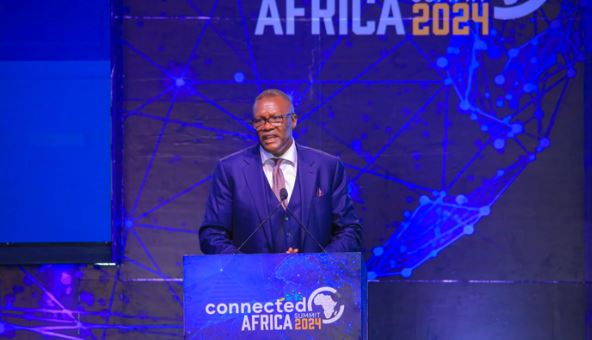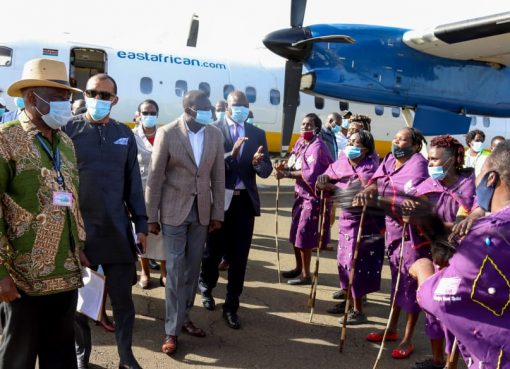The Connected African Summit 2024 concluded with a strong collaboration on leveraging digital technologies for the African continent’s advancement.
The Connected Africa Summit 2024, which took place from April 21–25 at Uhuru Gardens in Nairobi, featured the presence of ICT and Communication Ministers from 35 African nations, along with ambassadors from various regions.
The summit ended with a joint statement from African ICT Ministers to pursue collaboration with an ambitious goal of increasing internet access rates across Africa by 20 per cent in the next five years.
In his closing speech, Cabinet Secretary for the Ministry of Information, Communication, and the Digital Economy in Kenya, Mr. Eliud Owalo, said that the delegates at the summit affirmed their dedication to propelling Africa into a digital future, emphasising the importance of collaboration and innovation in driving Africa’s digital transformation.
“Thus, we shall train one million young Africans in digital skills by 2027 through capacity building, which would advance our shared vision of a digitally empowered Africa by 2030,” said Owalo.
Furthermore, the Cabinet Secretary said the collaboration will be marked by sustainability, accountability, equality, inclusion, transparency, diversity, and respect for human rights, including privacy.
The CS said through the discussions that Africa has managed to scan the operational environment to discern the challenges they have faced in the digital space and what they need to do to overcome those challenges.
The speaker emphasised the importance of recognising and addressing milestones achieved, as well as identifying and addressing gaps to ensure their sustainability in the long run.
Owalo said moving forward, they have articulated what their critical tech success factors should be, and this has informed the thematic areas of the key result areas for Africa as a continent in the technological space.
“We have come up with programmes and activities that we need to implement,” Owalo said, adding that they aim to promote greater collaboration and fuel investment towards the achievement of Africa’s Digital Agenda 2063 and Vision 2030.
He lauded the support of the heads of state of the various countries, the government, and the legislature, saying that most of the ICT interventions the countries in Africa want to introduce require the active support of the Parliament and other key stakeholders.
“Harmonising digital policies across the continent will fast track Africa’s ambition to position itself as the foremost global trade powerhouse under the African Continental Free Trade Area Framework,” he said.
On the other hand, Zoho Corporation East Africa Regional Manager Veerakumar Natarajan said the Summit aims to underscore the relevance of the digital economy in driving economic growth and development, especially by supporting SME startups and innovations.

“Zoho provides cloud-based customer relationship management software for managing sales, marketing, and customer support in a single system,” he said, adding that this helps businesses in East Africa and globally, achieve growth through digital transformation and forging local partnerships.
Natarajan said the summit provided an opportunity for African leaders, investors, and businesses like Zoho Corporation to come together, network, and harness the vast opportunities presented by the digital economy while addressing barriers and pressing issues affecting our economies.
“The world is constantly evolving, and businesses are trying to keep up. That is where we come in by making technology work for you,” he said, adding that the corporation offers an all-in-one suite that runs one’s entire business on Zoho unified cloud software.
The summit was officially closed by the Deputy President of Kenya, Rigathi Gachagua, who stated that with the advent of the digital revolution, Africa cannot afford to lag behind in harnessing massive opportunities to boost her social and economic agenda.
This year’s Connected Africa Summit 2024 theme was ‘Shaping the Future of a Connected Africa: Unlocking Growth Beyond Connectivity.’
By Anita Omwenga





